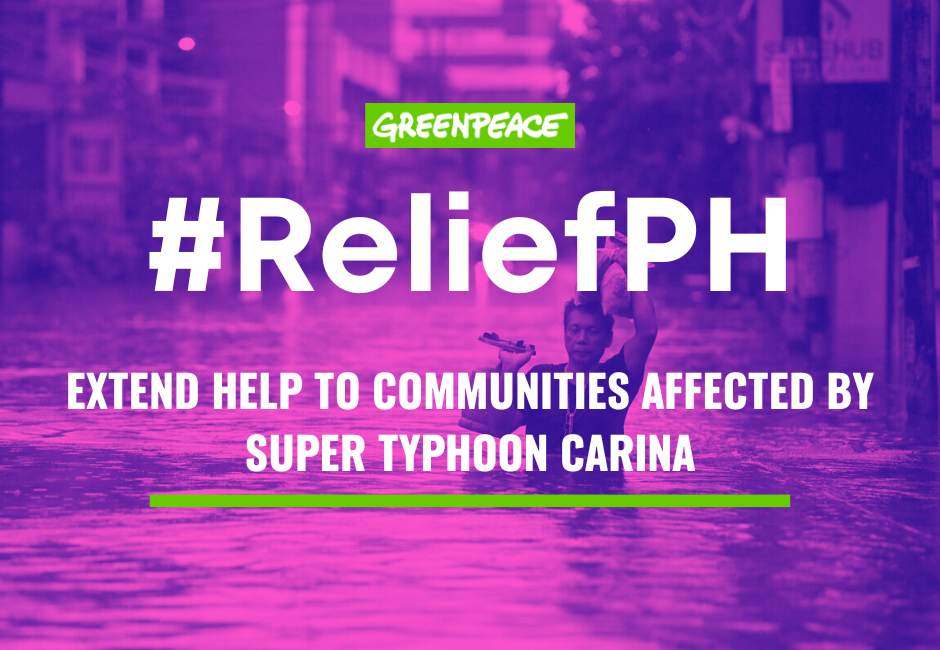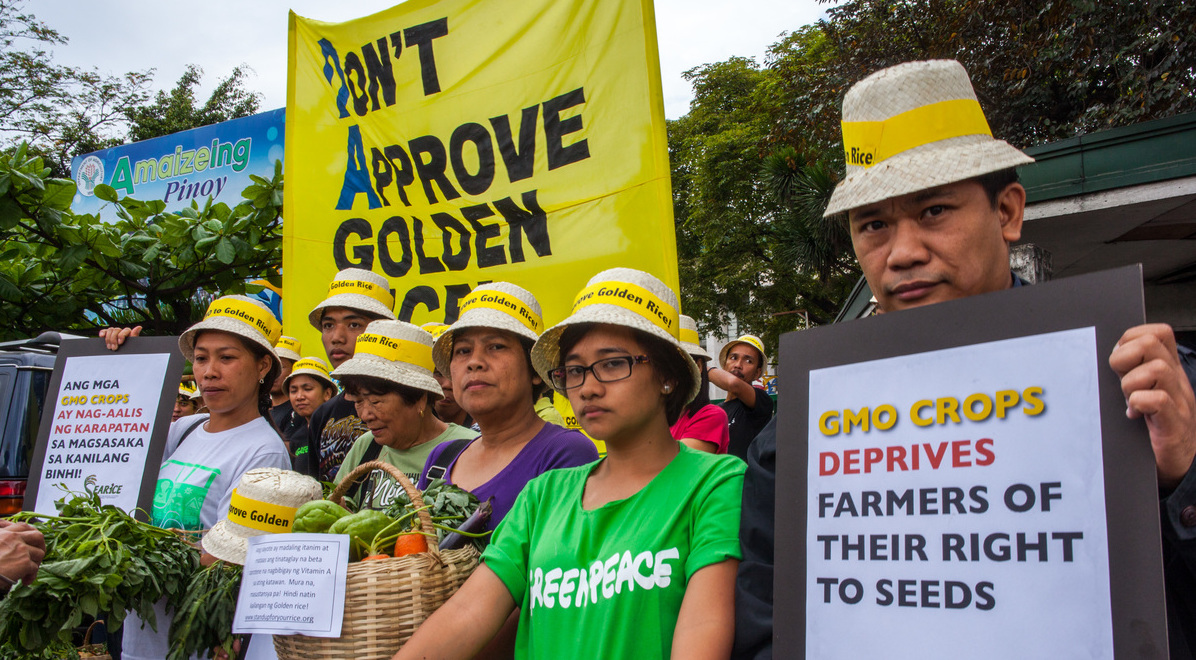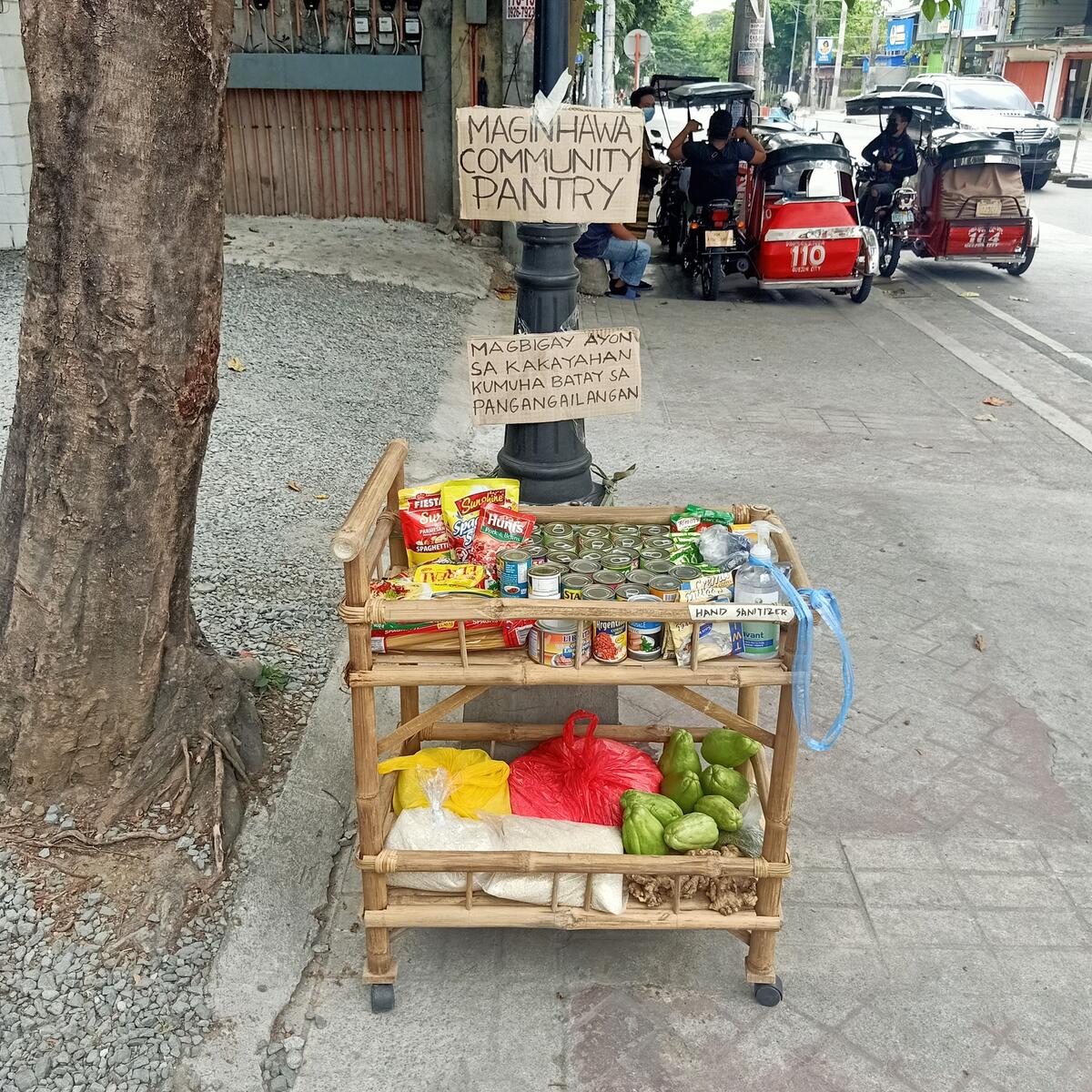Government Units, food producers such as farmers and fisherfolks, and civil society organizations find ways to sustain their communities during the COVID-19 pandemic. Local government units in various parts of the Philippines may have found responsive measures to ensure the continuity of their food supplies, and mitigate the market disruptions caused by the pandemic, yet how long can they continue the best practices? Can these best practices be institutionalized? How long can they sustain their communities?
These were among the issues discussed during the Kwentuhang Bayan: A Townhall Meeting on the Next Steps for a Post COVID- 19 Future for Food and Agriculture on May 20. The webinar is the second in the series of three webinars organized by Greenpeace Philippines, Rice Watch Action Network, Nagkaisang Grupo Laban sa RTL, and the Bayanihan sa Agrikultura.
Un-disrupting supply chain in the time of COVID-19
Lack of information and dissemination, inaccessibility of government services like KADIWA in far-flung communities in the mountains and islands, limited or total absence of transportation, inadequate financial assistance from the national government, and market losses are just a few of the challenges the local government units (LGUs) and people’s organizations are facing.
Despite rice importation, agricultural provinces like Isabela, Benguet, Iloilo, and Occidental Mindoro, continue growing rice to sustain response to local demand.
Prior to COVID-19, Isabela Province already launched the Super Cooperative of Isabela in October 2019, with over 8,000 farmer-members. The cooperative was put up mainly to counteract the effects of the Rice Tariffication Law (RTL) by procuring palay (rice) from its members at five pesos higher than the prevailing market price.
Isabela Governor Rodolfo Albano III said that there is a threshold limit in buying palay from each farmer. Rice products were distributed to the government workers and other constituents during the Enhanced Community Quarantine (ECQ). “Our farmer-members have two hectares or less of farmlands. They can only sell what they produce from their lands,” Governor Albano explained.
Tublay, a small municipality in Benguet composed of eight barangays, relies on agriculture. To lessen the difficulties of the farmers, Tublay Mayor Armando Lauro consulted with barangay leaders and stakeholders to consolidate all agricultural produce at the Municipal Compound and at the Department of Agriculture Office. Aduyon (“Bayanihan”) Food Security through Mutual Help was launched to assist the farmers. More than 200 metric tonnes of fresh produce from Tublay has been delivered to Metro Manila through collaborations with partners NGOs.
In Iloilo, the LGU partnered with Global Shapers Iloilo Hub, a civil society group, to tap online marketing. The group administrator helps to market online the products of farmers and fisherfolk who do not have smartphones or internet connections.
The Iloilo provincial government’s Pag-ulikid sa Mangunguma relief assistance program allotted P8.7 million to purchase agriculture products from small farmers that were distributed to households affected by ECQ.
In Calatagan, Batangas, a coastal and agricultural town, COVID-19 has least affected the livelihood of the people, according to Mien Cadano of the Municipal Agricultural Office.
“We attribute the bountiful catch of marine products to our decade-long protection of our marine sanctuary and municipal waters,” Cadano said.
Abra de Ilog in Occidental Mindoro is another coastal town with a 30-kilometer coastline. Mayor Eric Constantino said that, as part of his emergency powers, he prohibits and penalizes Dulong Fishing, which refers to catching small fishes using a fine-mesh scoop net. A one-year moratorium is imposed on Dulong Fishing to protect marine life in the municipal waters.
Mayor Constantino claimed that marine life now thrives in such a short span, giving more livelihood to the fisherfolk.
Coordination leads to success
Rare’s senior policy manager, Dennis Calvan, emphasized the importance of coordinating with LGU partners to assess the effects of ECQ measures and other regulations, to the communities. Fisherfolk were not able to transport marine products due to a lack of cold storage facilities during ECQ.
The Bureau of Fisheries and Aquatic Resources (BFAR) discussed the functionality of the community fish lending centers (CFLC). CLFC is established to ensure that small fisherfolk would be able to sell their catch at better prices with no brokers involved. Cooperative members can also utilize social funds to sustain themselves.
In isolated communities in the Bantayan and Guimaras Islands in Cebu Province, communal gardening, which started prior to COVID-19, sustains them during the quarantine.
“They will expand their vegetable gardening. They are making compost and organic fertilizers too. They also have a community savings group to assist their financial needs,” Marila Pablo of Rice Watch Action Network said.
Challenges remains
Despite the best practices among LGUs and CSOs, the biggest challenge in food security and sustainability remains.
“In the year 2050, if we don’t stop using plastics, it is expected that there will be more plastic than fishes in the oceans,” warned Matthew Dans of Philippine Reef and Rainforest Conservation Foundation, Inc.
In 2018, PRRCI started establishing prototype zero-waste stores. The group conducted a design workshop among seven coastal municipalities around Negros Island. The project, which ended in March, aimed to establish a local supply chain that does not depend on single-use plastics.
Due to the pandemic, it is expected that a huge amount of garbage, mostly single-use plastics, will pollute soil, water sources and seas, if we remain unmindful of plastic waste.
Multiple challenges during lockdown
“Small players like our farmers have experienced difficulties in delivering their farm produce due to the strict implementation of quarantine rules,” Charlene Tan of Good Food Community lamented.
The Inter-Agency Task Force (IATF) on Emerging Infectious Diseases restricts travel, and movements within and outside of the communities. Travel Passes are given to certain individuals provided their movements are necessary. A 14-day quarantine period is also mandatory to individuals traveling from areas with known COVID-19 cases.
Good Food Community (GFC) employs Community Shared Agriculture (CSA), a system that connects the producer and consumers within the food system, through subscriptions to the harvest of a certain farm or group of farmers.
In Bukidnon and Negros, elderly farmers also face multiple challenges. Due to their age and being considered as high risk, they are not able to market their products. To assist them, some groups help them sell their products online.
In Malaybalay, Bukidnon, three tons of squash either rotted away or were given away because the elderly farmers could not ship them to Cagayan de Oro, their main market.
“Even before the COVID-19, their pensions were already delayed. Now it is again delayed and they did not qualify for SAP,” Kat Meneses of Coalition of Services of the Elderly, Inc. (COSE), said.
Meneses said that a Universal Social Protection Program must be implemented to provide necessary assistance without limits to the marginalized sectors, like the elderly.
Institutionalization of ‘practices’
Agricultural rebooting is needed to ensure the continuity of the food chain. Community gardening, establishing seed banks and focusing on the needs of the farmers, instead of importing products, must be given attention.
“The national government should focus on buying the local products instead of importing,” Isabela Governor Rodolfo Albano III said.
SAGIP-SAKA ACT (Republic Act 1132) allows all government entities to directly purchase agricultural and fisheries products from local farmer and fisherfolk enterprises. During the pandemic, the law proved to be effective in mitigating the loss of income among the food producers.
“Our experience during the pandemic calls us to have ‘a new set of thinking’ which is holistic in approach,” Velma Lao, Local Economic and Investment Promotion Officer of Iloilo, said.
Know more about The Better Normal webinar series.
Catch the highlights of the first webinar here.
Watch the recap of the second webinar here.



